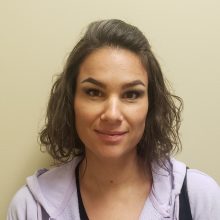Become A Registered Nurse
Request Information
Registered Nurse Resource – Everything You Need To Know Before You Become A Registered Nurse
In order to become a registered nurse (RN), candidates usually need a bachelor’s or associate degree in nursing though some students choose to earn diplomas from approved nursing programs instead. These programs may be offered in a traditional on-campus format, online, or in a blended format that incorporates campus- and web-based learning.
Regardless of their chosen pathway, RNs should complete courses in fields such as anatomy and physiology, chemistry, and nutrition. Once they complete their studies, RN candidates must pass the National Council Licensure Examination (NCLEX-RN) in order to be licensed. A license is required to work as an RN in all 50 states, the District of Columbia, and U.S. territories. In addition to licensing, RNs may choose to become certified in gerontology, pediatrics, or other specialized fields.
RNs are in high demand. The Bureau of Labor Statistics projects that jobs for RNs will rise 15% adding more than 430,000 new positions between 2016 and 2026. In addition, nurses earn salaries above the national average. RNs can choose from several specialized roles, including critical care nurses who work in intensive-care units, neonatology nurses that care for newborns and infants, and rehabilitation nurses who care for patients with temporary or permanent disabilities.
If you wish to become a registered nurse, you can enroll in many different educational programs from the diploma to doctoral level. However, all will culminate with the NCLEX-RN exam. There are several pathways you can follow in order to take the NCLEX-RN exam, as well as various other resources you may need if you are thinking about becoming a registered nurse.
RN Education Pathways
You can become a registered nurse using the following educational methods:
DIPLOMA IN NURSING
A diploma in nursing provides students with basic nursing knowledge and practical nursing experience in a clinical setting. A nursing diploma program typically takes two to three years to complete, depending on a student’s enrollment status. Nursing diploma students enroll in courses covering topics such as lifespan nursing concepts, nursing informatics, basic pharmacology and psychology, and public health. A large portion of the nursing diploma program involves direct patient care, often through hospitals or health providers with ties to the school.
A nursing diploma program prepares students to pass the NCLEX-RN, a basic requirement for nursing professionals throughout the U.S. and Canada. An RN license qualifies holders for several entry-level nursing positions and further studies in the nursing field.
Since diploma programs immerse students in direct patient care, students graduate from the program with practical nursing skills that prove invaluable not only in a hospital setting but in other clinical environments as well. Additionally, completing a nursing diploma program gives students the chance to enter the workforce sooner. Students who wish to pursue further studies can do so while already working in the field.
ASSOCIATE DEGREE IN NURSING (ADN)
An associate degree in nursing (ADN) prepares students to enter the workforce after just two years of full-time enrollment. Many employers prefer nurses with an associate degree over those with just a diploma. ADN programs require students to complete a certain number of clinical hours in order to graduate. However, the required number of clinical hours varies between schools.
Like most associate degrees, an ADN consists of 60 credits. An ADN curriculum includes foundational nursing courses such as anatomy, microbiology, pharmacology, behavioral health, and maternal and child nursing care. In addition, an ADN program also includes general liberal arts classes like English literature, history, writing and communications, and psychology. After completing an ADN program, students usually take the NCLEX-RN to obtain their registered nurse license.
An ADN prepares students for employment in the nursing field immediately after graduation. However, most ADN programs also provide students with an excellent foundation for further studies in nursing or in a closely related field. Many universities with four-year nursing programs maintain articulation agreements with two-year colleges that help ADN graduates transition to a four-year nursing program.
Bachelor of Science in Nursing
Sumner College’s Bachelor of Science Degree in Nursing (BSN) consists of 12 quarter-based terms and 185 credits. This program does not require prerequisite coursework, and allows for up to 25% of previously earned credits to transfer, allowing students to graduate and enter the workforce in under three years. Our BSN is the only program in Oregon and Washington that doesn’t require prerequisite coursework.
However, licensed registered nurses with an associate degree in nursing can usually earn a BSN after just two years of full-time study. Many hospitals and other health-based organizations prefer nurses with BSN degrees. In addition to more job options, nurses with a BSN degree are also more likely to be promoted and entrusted with greater responsibilities.
Sumner College offers an online RN-to-BSN program. Nurses no longer have to stop working while pursuing their BSN degree, since they can more easily fit online classes around their busy schedules. A typical BSN curriculum includes courses on topics such as emergency care; health assessment; nutrition; public and global health; and family, community, and population-based care.
The amount of clinical or practicum hours in an RN-to-BSN program can vary greatly between schools. Most programs require students to follow a rotation-based clinical program. Student nurses train in different departments or clinical specialty areas, such as pediatrics or obstetrics, to gain a broad understanding of the nursing field and their professional duties and responsibilities.
MASTER OF SCIENCE IN NURSING (MSN)
The nursing field consists of several different specializations, and employers increasingly seek nurses with training in a specific nursing area. A master of science in nursing degree (MSN) gives nurses the opportunity to specialize in a particular medical arena, such as anesthesiology, mental health, or acute care. Nurses can also use an MSN to develop the necessary skills to work within a specific lifespan sector like gerontology or pediatrics. Nurses who opt to specialize in nondirect care aspects of the nursing profession, as nurse educators or clinical nurse leaders, also benefit from earning an MSN.
Registered nurses often qualify for RN-to-MSN programs. The length of the program depends on the type of nursing degree students have at the start of the program, the number of credits they can transfer, and their enrollment status. RNs with an associate degree or diploma in nursing typically complete an RN-to-MSN program in three to four years. RNs with a nonnursing bachelor’s degree can complete the program in two to three years. Students with a BSN degree typically take two years to earn an MSN degree.
Most MSN degrees require students to complete a practicum, usually comprised of several hundred hours of clinical nursing experience. The required number of hours varies between schools but often comes to at least 500. Regardless of a student’s specialty area or the population, they wish to work with, MSN students usually enroll in courses in pharmacology, health care policy, ethics, and advanced health assessment.
DOCTORATE IN NURSING
There are two terminal degrees in nursing doctor of philosophy (Ph.D.) and doctor of nursing practice (DNP). Both degrees present the holder as an expert in the nursing field and thus qualified for a variety of leadership and top administrative nursing positions. A Ph.D. in nursing prepares nurses to pursue careers in research-oriented sectors such as academia or research organizations. A Ph.D. can take four to six years to complete. Ph.D. candidates often must write a dissertation.
A DNP degree, on the other hand, prepares nurses for the highest level of nursing practice in a clinical setting. The degree typically takes two to three years to complete. Most schools require DNP candidates to complete an evidence-based practice project.
Doctorate students enroll in courses that focus on their specialization area, but most programs offer classes that cover common advanced nursing topics. Some of these classes include the following: health policy and advocacy, principles of epidemiology and environmental health, fundamentals of comprehensive care across the lifespan, and intellectual and conceptual foundations of nursing science.
BSN-to-DNP and Ph.D. in nursing programs usually require the completion of at least 60 credits and a minimum of 1,000 practicum hours. Some of these programs award an interim MSN degree, while others move students straight to the doctorate program as soon as they meet the requirements. Nurses with an MSN degree may take fewer classes, depending on the number of credits they can transfer to the doctorate program. Many schools require MSN-to-DNP or Ph.D. students to complete a minimum of 500 clinical work hours.
Content shared from Nurse Journal – For more information visit https://nursejournal.org/registered-nursing/guide-to-become-a-rn/
Learn more:

Jami
RN
“The ADN program at Sumner College is the second nursing program that I have completed successfully, this last time of which enabled me to fulfill my dream of becoming an RN.”
Read Full Spotlight






This week’s Information Sessions
Head over to one of our campuses for a great info session this week! In these sessions, you’ll learn about the application process, including how…
Share at FacebookShare at TwitterShare at PinterestShare at LinkedIn
Changing the Nursing Narrative
The American Nurses Enterprise (ANE- associated with American Nurses Association) has launched a bold new initiative aimed at redefining how society understands and measures the…
Share at FacebookShare at TwitterShare at PinterestShare at LinkedIn
Information Q&A
🌟 Discover Your Calling in Healthcare – Join Our BSN Info Session! 🌟 Sumner Nursing College | Bachelor of Science in Nursing 📅 Classes Begin:…
Share at FacebookShare at TwitterShare at PinterestShare at LinkedIn
Information Sessions
Are you ready to take the next step toward a rewarding career in healthcare? At Sumner College, we are committed to providing you with the…
Share at FacebookShare at TwitterShare at PinterestShare at LinkedIn
Bend, in May!
Take a sneak peek into one of our brand new classrooms at our Bend campus, on campus information sessions are held once a week, register…
Share at FacebookShare at TwitterShare at PinterestShare at LinkedIn
Sumner College Student of The Month | February 2025
Congratulations Josephiene for being the February 2025 Student of the Month at Sumner! CONGRATULATIONS ON YOUR ACCOMPLISHMENT! Meet Josephiene, a dedicated nursing student whose passions…
Share at FacebookShare at TwitterShare at PinterestShare at LinkedIn
TEAS Exam Time!
The TEAS exam is a crucial part of the admissions process and a key step toward your nursing career. To help you prepare, we’ve gathered…
Share at FacebookShare at TwitterShare at PinterestShare at LinkedIn
Nursing in Oregon
Become a Nurse at Sumner College Nursing School in Oregon! Ready to start a rewarding career in healthcare? Sumner College Nursing School offers a…
Share at FacebookShare at TwitterShare at PinterestShare at LinkedIn
International Women’s Day
Thank you to all of the women in our lives, including the majority of our nursing occupations!…
Share at FacebookShare at TwitterShare at PinterestShare at LinkedIn
Apply Today!
Ready to start your nursing career? At Sumner College Nursing School, we offer hands-on training, personalized support, and a pathway to success in the healthcare…
Share at FacebookShare at TwitterShare at PinterestShare at LinkedIn
Become a Nurse!
Nursing offers numerous advantages, making it a rewarding career choice. The profession boasts excellent job security, with a projected 6% growth rate among registered nurses…
Share at FacebookShare at TwitterShare at PinterestShare at LinkedIn
First Day!
Happy first day to our latest BSN cohort, and welcome to the Bend campus!…
Share at FacebookShare at TwitterShare at PinterestShare at LinkedIn
Is Nursing School for Me?
Nursing school is not just an opportunity to build a rewarding career; it’s a chance to make a real difference in people's lives every day.…
Share at FacebookShare at TwitterShare at PinterestShare at LinkedIn
Bend Countdown!
Welcome to Bend! We are excited for our first Bend BSN Cohort to start! Feel free to contact us with any questions!…
Share at FacebookShare at TwitterShare at PinterestShare at LinkedIn
Studying for the TEAS Exam
As part of the admissions process, the TEAS exam is an important step toward your future in nursing. We've compiled a list of helpful resources,…
Share at FacebookShare at TwitterShare at PinterestShare at LinkedIn
What Kind of Nurse Should I Be?
There are many different kinds of nurses, some you may not know had a specialty, including: Case Management, Neuroscience, Telephone Triage, and Forensics. Regardless of…
Share at FacebookShare at TwitterShare at PinterestShare at LinkedIn
17 Days until Bend Launches!
With just 17 days until our first class of BSN's start in Bend, be sure to reach out to our admissions representatives to get all…
Share at FacebookShare at TwitterShare at PinterestShare at LinkedIn
Helpful Hints!
Nursing students often face a variety of challenges, from long study hours to the financial strain of tuition. The coursework and exams can be intense,…
Share at FacebookShare at TwitterShare at PinterestShare at LinkedIn
Bend Info Sessions
Join us in an informational meeting to learn all about our NEW Bend, OR campus! Our first BSN cohort starts February 24th!…
Share at FacebookShare at TwitterShare at PinterestShare at LinkedIn
Bend Campus – February 24th!
Exciting news, Bend! The future of nursing is here with Sumner College’s Bachelor of Science in Nursing (BSN) program. If you're passionate about healthcare and…
Share at FacebookShare at TwitterShare at PinterestShare at LinkedIn
SUMNER COLLEGE STUDENT OF THE MONTH | JANUARY 2025
Congratulations Reece for being the January 2025 Student of the Month at Sumner! Congratulations on your accomplishment!…
Share at FacebookShare at TwitterShare at PinterestShare at LinkedIn
Virtual Tours at Sumner College
Curious about how we prepare future nurses for real-world challenges? Take a virtual tour of our advanced simulation labs and see firsthand how we equip…
Share at FacebookShare at TwitterShare at PinterestShare at LinkedIn
Nursing Over the Years
The nursing profession has evolved significantly from its origins in familial caregiving to the modern, highly specialized field it is today. Key milestones include Florence…
Share at FacebookShare at TwitterShare at PinterestShare at LinkedIn
Back to School Made Easy
Going back to school has never been easier with the support of our dedicated admissions team at Sumner College. Whether you're looking to advance your…
Share at FacebookShare at TwitterShare at PinterestShare at LinkedIn
Bend Countdown!
🚨49 DAYS UNTIL LAUNCH!🚨 Get ready, Bend! The future of nursing starts right here with Sumner College's Bachelor of Science in Nursing (BSN) program –…
Share at FacebookShare at TwitterShare at PinterestShare at LinkedIn
Start Your Nursing Career in 2025!
🎄Enroll Now & Start Your Nursing Career in 2025! 🎄 As the holiday season approaches, there's no better time to give the gift of a…
Share at FacebookShare at TwitterShare at PinterestShare at LinkedIn
A Second Career in Nursing
It’s never too late to begin! Regardless of your stage in life, nursing is an excellent option. There is always a demand for dedicated nurses,…
Share at FacebookShare at TwitterShare at PinterestShare at LinkedIn
Average Nursing Salary in Oregon
Did you know? Nurses in Oregon make an average salary of about $114,694, or $55 an hour. In the Portland area this is about 264%…
Share at FacebookShare at TwitterShare at PinterestShare at LinkedIn
5 Nursing Trends Heading into 2025
In an ever changing career its important to know what may be coming your way. Here's 5 things to look for in theNew Year! The…
Share at FacebookShare at TwitterShare at PinterestShare at LinkedIn
SUMNER COLLEGE STUDENT OF THE MONTH | DECEMBER 2024
Congratulations Kymra for being the December 2024 Student of the Month at Sumner! Congratulations on your accomplishment!…
Share at FacebookShare at TwitterShare at PinterestShare at LinkedIn